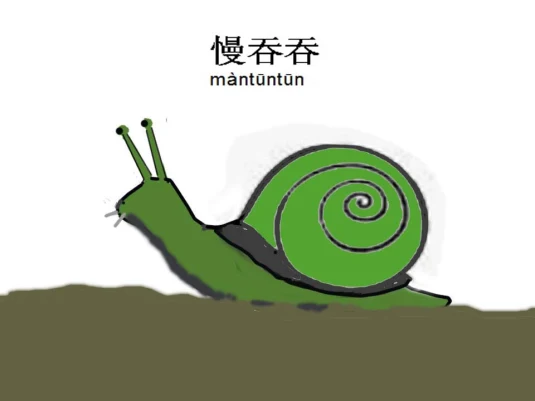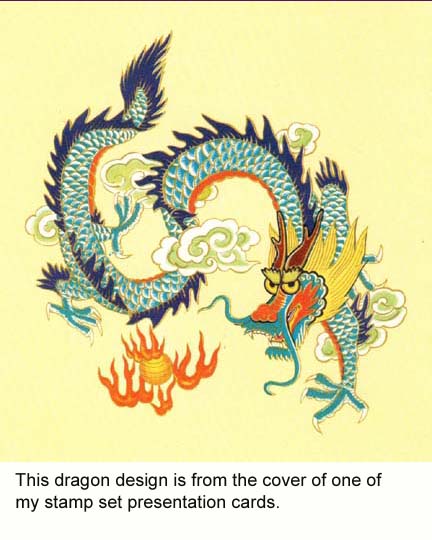
I saunter into the garden at the height of springtime, and my heart is filled with the joy of seeing the burst of soft pink blossoms on our apple tree. Not only are these blossoms beautiful to look at, but thanks to Mother Nature, many of them also promise a delicious fruit later in the fall. By contrast, the fig tree has only put forth new green leaves. No flowers in sight. Wait! I do see a few breba figs attached to a couple of the older branches! The fact is that figs are actualy fleshy stems that surround the tiny flowers inside. And because this tree appears to produce fruits without first issuing flowers, the Chinese call it “the fruit tree without blossoms”, i.e. 无花果树 (wúhuāguǒ shù).
The Chinese word for fruits is 果 (guǒ), 果实 (guǒshí), or 果子 (guǒzi). The fruits that we normally consume are called 水果 (shuǐguǒ). It’s interesting that only a few fruits have the word 果 (guǒ) in their names. Off hand I can only think of six: apples (苹果 píngguǒ), figs (无花果 wúhuāguǒ), passion fruit (百香果 bǎixiāngguǒ), mangos (芒果 mángguǒ), kiwi fruit (奇异果 qíyìguǒ), and dragon fruit (火龙果 huǒlóngguǒ). As an exercise, please look up the Chinese names for the following fruits: pear, orange, papaya, pineapple, watermelon, grape, banana, strawberry, raspberry, blueberry, blackberry, guava, pommegranate, cherry, peach, apricot, persimmon, rose apple, longan and lychee.
果树 (guǒ shù) are fruit trees, and 果园 (guǒyuán) is an orchard.
In a fruit, you would normally find 果皮 (guǒpí the peel), 果肉 (guǒròu the pulp) and 果仁 (guǒrén the nut). The 果糖 (guǒ táng fructose) gives the fruit its sweet taste.
You could dry the fruit to make 干果 (gānguǒ dried fruit) or process it to make 果酱 (guǒjiàng jam), 果汁 (guǒzhī fruit juice), 果冻 (guǒdòng fruit jelly), or 果馅 (guǒ xiàn fruit filling). Fruits can also be fermented to make 水果酒 (shuǐguǒ jiǔ wine), or 果酒 (guǒjiǔ) for short. FYI, in my e-book “Tame Migraine the Delicious Way” you will find a few recipes for delcious cookies, pies and cakes containing fresh or dried fruits.
瓜果 (guā guǒ) is a general term for melons and fruits.
野果 (yě guǒ) are wild fruits.
坚果 (jiānguǒ) are nuts. Cashews are called 腰果 (yāoguǒ) because they are shaped like kidneys.
我喜欢吃核桃和杏仁.
Wǒ xǐhuān chī hétáo hé xìngrén.
I like to eat walnuts and almonds.
开心果 (kāixīn guǒ) are pistachios. When applied to a person, 开心果 (kāixīn guǒ) is a person who brings joy, such as “the apple of one’s eyes”.
糖果 (tángguǒ) are candies.
The term 果腹 (guǒfù) is taken from classical Chinese. It means to fill the stomach and feel satiated. 食不果腹 (shí bù guǒfù) is a commonly used phrase that means not having enough to eat.
松果 (sōng guǒ) are pinecones.
It’s interesting to note that the transliteration of Congo is 刚果 (Gāngguǒ), which literally means “steel fruit”.
结果 (jiéguǒ) as a verb means to produce fruit, as in 开花结果 (kāihuā jiē guǒ) – bloom and bear fruit. As a noun, 结果 (jiéguǒ) refers to the result of one’s effort, or the outcome of an event. Therefore, 开花结果 (kāihuā jiē guǒ) also means to yield positive results.
他用功读书, 结果成绩名列全班第一.
Tā yònggōng dúshū, jiéguǒ míng liè quán bān dì yī.
He studied hard and ranked first in the class.
测验结果 (cèyàn jiéguǒ) are test result, and 统计结果 (tǒngjì jiéguǒ) are statistical results.
果实累累 (guǒshí lěi lèi) is an idiom that describes how a tree is bearing lots of fruits. This expression can also figuratively refer to a load of accomplishments.
成果 (chéngguǒ) are achievements. 战果 (zhànguǒ) is the successful outcome of a war.
禁果 (jìnguǒ) is the forbidden fruit.
后果 (hòuguǒ) are the consequences, whereas 恶果 (èguǒ) are the bad consequences. 效果 (xiàoguǒ) are the effects.
自食其果 (zìshíqíguǒ) is an idiom that means to reap the consequences. This expression is always used in the negative sense although on the surface it sounds quite benign to “eat one’s own fruit”.
前因后果 (qiányīnhòuguǒ) means cause and effect. This phrase is often used to refer to the details of a matter or the ins and outs of a situation.
因果报应 (yīnguǒ bàoyìng) refers to karma.
你相信因果报应吗?
Nǐ xiāngxìn yīnguǒ bàoyìng ma?
Do you believe in karma?
果断 (guǒduàn) means decisive, and 果敢 (guǒgǎn) means bold.
果然 (guǒrán) and 果真 (guǒzhēn) both mean really, indeed, or as expected.
他果然没有来.
Tā guǒrán méiyǒu lái.
Indeed he didn’t come.
Last but not least, the Chinese word for “if” is 如果 (rúguǒ).
如果你不相信我, 你自己去看看.
Rúguǒ nǐ bù xiāngxìn wǒ, nǐ zìjǐ qù kàn kàn.
If you don’t believe me, go and see for yourself.
母亲节快乐!
Mǔqīn jié kuàilè!
Happy Mother’s Day!




Recent Comments